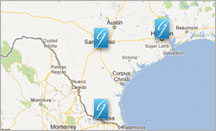The Non-Citizen’s Guide to Working Legally in the U.S.
You do not have to be a citizen or lawful permanent resident of the United States to work in this country. Foreign workers often come to the U. S. to work as researchers, artists, technology specialists, cultural exchange participants, medical professionals and agricultural workers. All foreign workers must obtain an Employment Authorization Document from the United States Citizenship and Immigration Services (USCIS).
The Employment Authorization Document (EAD) is a plastic, credit card-sized document that a person must show to an employer as proof of eligibility to work in the U.S. Employment authorization is granted for a 12-month period. A person with an unexpired EAD can work for any U.S. employer. People who do not have an EAD might still be eligible to work for a specific employer under the terms of certain visa categories.
Types of Eligible Workers
Foreign workers in several alien status categories are eligible to apply for authorization to work in the United States. Some of the eligible categories of alien status include:
- Asylum seekers or those seeking refugee status
- Students
- Foreign nationals in the final stages of applying for permanent residence
- Foreign nationals from countries given temporary protected status by the U.S.
- Spouses and would-be spouses of U.S. citizens
- Spouses and children of exchange visitors
Other status categories can offer a foreigner the opportunity to apply for an EAD. For example, a person granted status under the Family Unity Program might be eligible to file for an EAD.
H-1B Visas
Certain visa categories, such as work visas, allow a person to enter the United States and work without first obtaining an EAD. An H-1B visa is a non-immigrant visa that allows companies in the U.S. to employ foreign workers in specialty occupations. The H-1B visa allows the foreign worker to legally reside and work in the U.S. for up to three years, and the residency is eligible for an extension of three years. Spouses and children may come to the U.S. with the H-1B holder.
The application for an H-1B visa cannot be filed by the foreign worker. The prospective employer must file the application and obtain the visa to allow the worker to enter the U.S. to work for the petitioning employer. The number of H-1B visas is subject to limits set annually by an act of Congress.
H-1B visa applications can be submitted for occupations requiring specialized knowledge or skills and at least a bachelor’s degree. The employer must file an application with the United States Department of Labor attesting to the fact that the worker will be paid prevailing wages and that employing a foreign worker will not adversely affect working conditions of other U.S. workers. The certification issued by the Department of Labor confirms the employer’s representations and verifies that the position cannot be filled by the current U.S. pool of available workers.
To learn more about working legally in the United States, contact the Gutierrez Law Firm at 210.225.7114.






